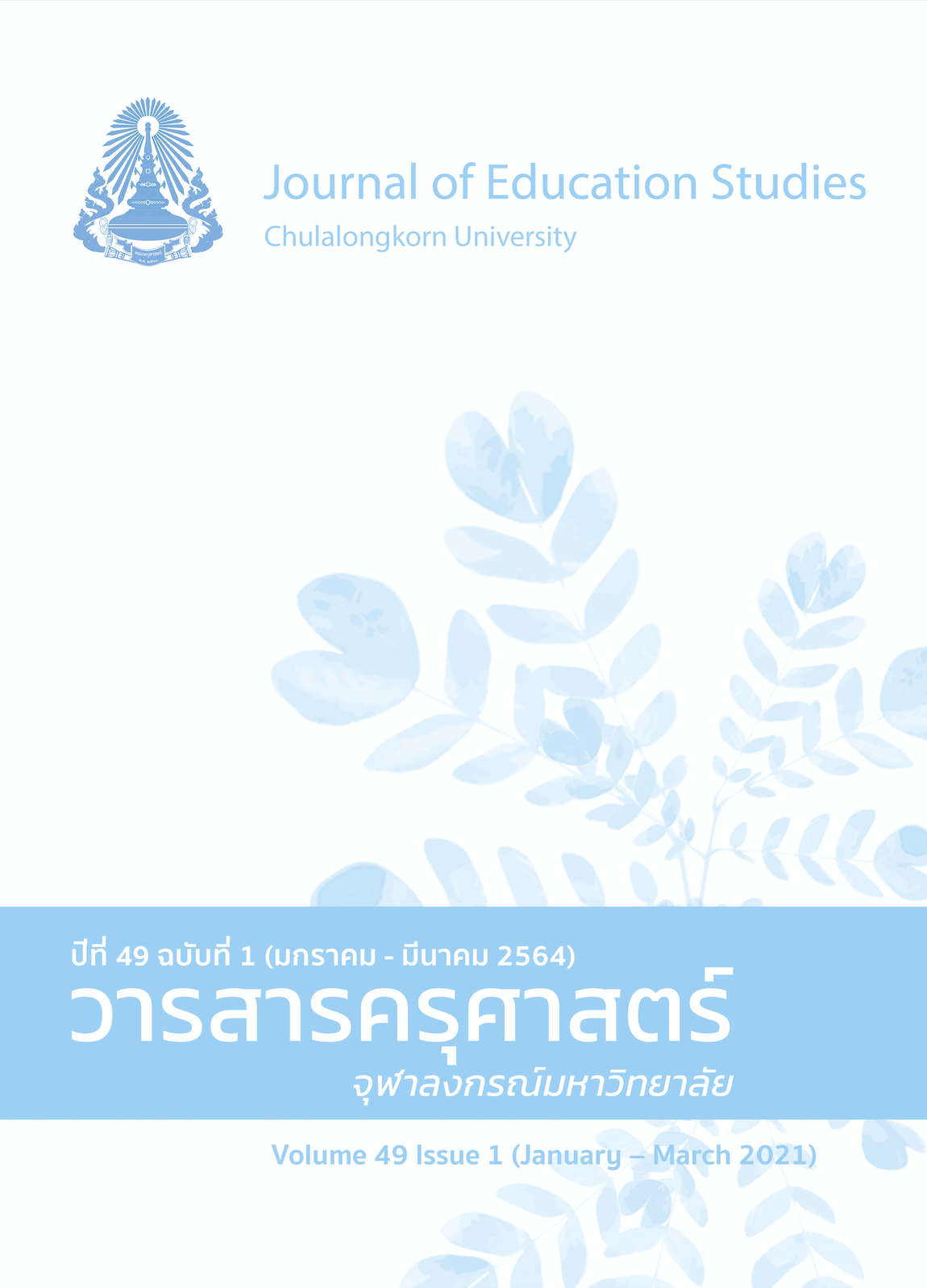Strategies for Policy Formulation and Implementation Concerning the Provision of Tablet PC to Schools
DOI:
https://doi.org/10.14456/educu.2021.5Keywords:
policy formulation, policy implementation, tablet pcAbstract
The objective of this research, in regard to the provision of tablet computers to Thailand’s schools, using mixed research methods, is to study the current and desirable states, use the SWOT analysis technique to analyse the Strengths, Weaknesses, Opportunities and Threats, and develop strategies for policy formulation and implementation. Policy board members, 145 primary education service area offices and 345 schools were used to collect research samples, and the research instruments employed comprised semi-structured interviews and questionnaires. The frequency, percentage, average, standard deviation, PNImodified and content analysis were used to analyse the data. The research findings showed that politicians played a major role in policy formulation, without strategic planning based on research, and with a reduced participation of stakeholders. The overall view of the current states of policy implementation was at a high level. The desirable states were the collaboration on brainstorming, preparation and planning. The strengths were the social advantage policy, target setting, patterns of control, monitoring mechanisms and values for implementation, while the weaknesses were a lack of collaboration, success criteria definition and organizational procedures. The opportunities were the education policies and technological advancement, while the threats were economic and social conditions. The policy formulation strategies were to raise the level of policy acceptance and to identify the policy strategic directions. The policy implementation strategies were to assign accountability for policy implementation at each level, employ strict and effective governance and create Key Performance Indicators (KPI) to improve students’ outcomes.
References
จีระ ประทีป, กรภัค จ๋ายประยูร, หทัยรัตน์ ทับพร, ประไพ ศิวะลีราวิลาศ, เฟื่องอรุณ ปรีดีดิลก, และ ปวีณา
ชะลุย. (2545). การศึกษาวิจัยเรื่องกระบวนการกำหนดนโยบายการศึกษาของสำนักงานคณะกรรมการการศึกษาแห่งชาติ. ครุศาสตร์ จุฬาลงกรณ์มหาวิทยาลัย. http://pioneer.netserv.chula.ac.th/
~pfuangar/paper10.doc
ทศพร ศิริสัมพันธ์. (2539). ความรู้เบื้องต้นเกี่ยวกับนโยบายสาธารณะ. สำนักพิมพ์แห่งจุฬาลงกรณ์มหาวิทยาลัย.
นพรุจ ศักดิ์ศิริ. (2550). การวิเคราะห์ปัจจัยที่สัมพันธ์กับความสำเร็จของการนำนโยบายเทคโนโลยีสารสนเทศและการสื่อสารเพื่อการศึกษาไปปฏิบัติในสถานศึกษาขั้นพื้นฐาน [วิทยานิพนธ์ปริญญาดุษฎีบัณฑิต ไม่ได้ตีพิมพ์]. จุฬาลงกรณ์มหาวิทยาลัย.
มหาวิทยาลัยศรีนครินทรวิโรฒ. (2555). รายงานสรุปผลการศึกษานำร่อง โครงการนำร่องการประยุกต์และ
บูรณาการคอมพิวเตอร์แท็บเล็ตเพื่อการเรียนการสอนในระดับประถมศึกษาตามแนวนโยบายของรัฐบาลระยะที่ 1. กรุงเทพมหานคร.
สำนักงานเลขาธิการสภาการศึกษา. (2550). รายงานการสังเคราะห์สภาวการณ์และปัจจัยที่ส่งผลต่อคุณภาพการศึกษาของไทย. วี.ที.ซี. คอมมิวนิเคชั่น.
สำนักงานเลขาธิการสภาการศึกษา. (2552). รายงานการศึกษาวิจัยโครงการรูปแบบการพัฒนาการเรียนรู้โดยผ่านเครื่องคอมพิวเตอร์พกพา (One laptop per child). กรุงเทพมหานคร.
สำนักงานสถิติแห่งชาติ. (2554). รายงานการสำรวจ (2549-2553). http://service.nso.go.th/nso/
nsopublish/pubs/pubsfiles/ictDev54.pdf
สำนักนายกรัฐมนตรี. (2554). คำแถลงนโยบายของคณะรัฐมนตรี : นางสาวยิ่งลักษณ์ ชินวัตร นายกรัฐมนตรี. http://www.thaigov.go.th/th/government-policies/item/73629-นางสาวยิ่งลักษณ์-ชินวัตร-23-สิงหาคม-2554.html
ศิริลักษณ์ นาทัน. (2550). การศึกษาสภาพและปัญหาการบริหารงานเทคโนโลยีสารสนเทศและการสื่อสารของโรงเรียนต้นแบบในโครงการหนึ่งอำเภอหนึ่งโรงเรียนในฝัน [วิทยานิพนธ์ปริญญามหาบัณฑิต ไม่ได้ตีพิมพ์]. จุฬาลงกรณ์มหาวิทยาลัย.
ภาษาอังกฤษ
Berman, P. (1978). The study of macro- and micro-implementation public policy. (n.p.).
Berman, P., & McLaughlin, M. W. (1977). Federal programs supporting educational change, Vol. VII: Factors affecting implementation and continuation. The Rand Corporation.
Easton, D. (1983). Longman dictionary. Longman Pub Group.
Downloads
Published
How to Cite
Issue
Section
License

This work is licensed under a Creative Commons Attribution-NonCommercial-NoDerivatives 4.0 International License.




